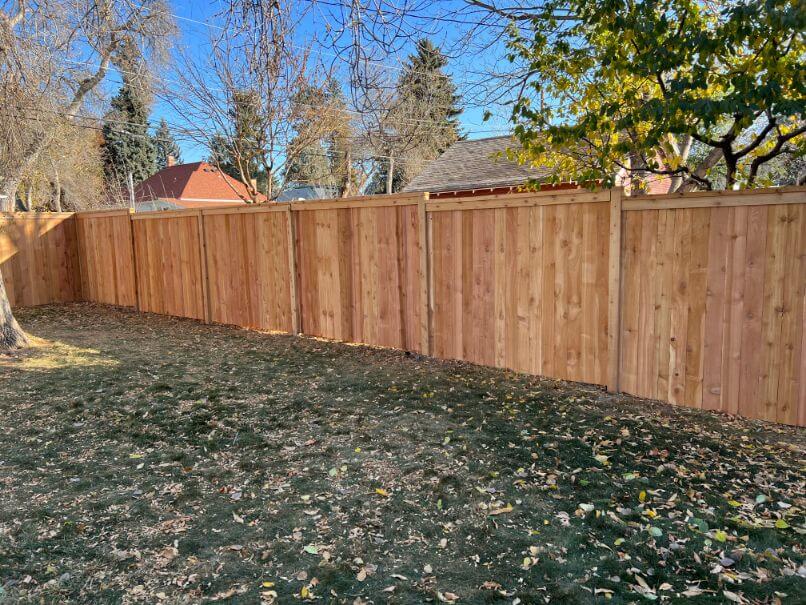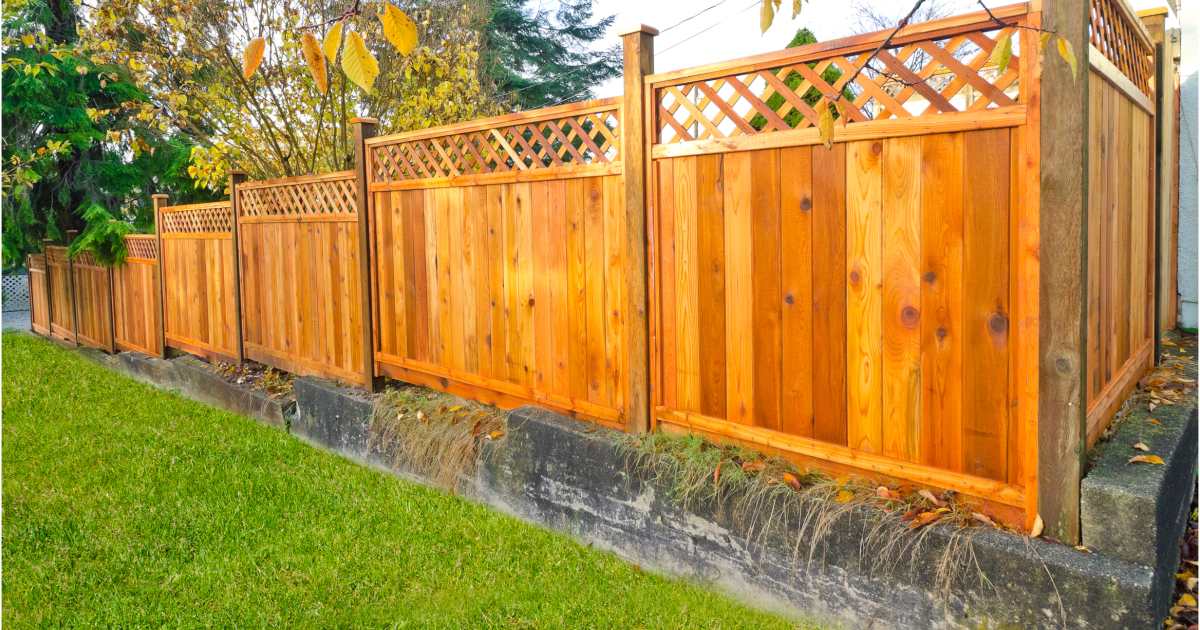All Categories
Featured
When taking into consideration fencing for your home, sturdiness is a leading concern. Wrought iron is frequently selected for its excellent durability, however just how does it compare to various other common fence products, such as vinyl, wood, and light weight aluminum?
Wrought Iron: The Solid and Trusted Option. One of the major advantages of wrought iron is its resistance to damage from insects, rot, or weathering, which are common issues with timber fences. Unlike wood, functioned iron will not warp, split, or degeneration over time, making it an excellent selection for homeowners who desire a durable, low-maintenance fence.
![]()
While functioned iron does require some routine maintenance to stop rust, it is normally very easy to take care of and can last for decades if kept correctly. A well-maintained wrought iron fencing can last 50 years or longer, offering lasting value and security for your residential or commercial property.
Timber Secure Fencing: A Standard yet High-Maintenance Choice. Wood is vulnerable to a number of issues that impact its toughness, consisting of decomposing, bending, and termite damages. While a timber fence can last anywhere from 10 to 30 years depending on the type of wood and upkeep, it calls for regular maintenance, including sealing, discoloration, or painting to safeguard it from the aspects.
Wood fences are additionally extra at risk to physical damages, such as splintering or fracturing under stress. If you're trying to find a fencing that is low-maintenance and can withstand harsh climate and damage, functioned iron is a more durable choice to timber.
Plastic Fence: Reduced Maintenance but Less Strength. Vinyl secure fencing is known for being immune and low-maintenance to rot, fading, and staining. It is a preferred option to wood because it does not require normal painting or staining. However, while vinyl is resistant to numerous components, it is not as solid as functioned iron. Plastic can break or become weak in incredibly cold temperature levels and might not have the ability to withstand the influence of an accident or heavy winds in addition to functioned iron.
Plastic fence usually lasts in between 20 and thirty years, and although it does not require as much maintenance as timber, it doesn't have the exact same lasting toughness that functioned iron offers. If longevity under severe problems is your concern, wrought iron is the more trusted option.
![]()
Aluminum Fencing: A Lightweight and Resilient Alternate. Aluminum fence is a lighter alternative to functioned iron, supplying similar benefits in terms of reduced maintenance and resistance to rust. Aluminum won't corrosion, warp, or rot, and it can last 20 to three decades or even more with marginal treatment. Nevertheless, light weight aluminum is not as strong as wrought iron and can be a lot more easily harmed by impacts, making it much less ideal for high-security or high-traffic locations.
While aluminum is more economical and easier to install than functioned iron, it doesn't use the exact same degree of durability or effect resistance. For those who desire a solid, durable fence that provides safety and longevity, wrought iron remains the superior choice.
Conclusion: Wrought Iron for Ultimate Longevity. In the battle for toughness, functioned iron constantly outshines other materials like timber, light weight aluminum, and plastic. Its capacity to hold up against physical damage, harsh weather, and the test of time makes it one of one of the most dependable fencing options available. While timber requires considerable upkeep, vinyl and aluminum are not as strong as functioned iron and may not provide the same long-term durability.
For homeowners seeking a fence that incorporates toughness, safety, and timeless beauty, wrought iron is an outstanding financial investment. With correct care, a wrought iron fencing can last a life time, adding worth and safety and security to your building while improving its total visual appeal.
Wrought Iron: The Solid and Trusted Option. One of the major advantages of wrought iron is its resistance to damage from insects, rot, or weathering, which are common issues with timber fences. Unlike wood, functioned iron will not warp, split, or degeneration over time, making it an excellent selection for homeowners who desire a durable, low-maintenance fence.

While functioned iron does require some routine maintenance to stop rust, it is normally very easy to take care of and can last for decades if kept correctly. A well-maintained wrought iron fencing can last 50 years or longer, offering lasting value and security for your residential or commercial property.
Timber Secure Fencing: A Standard yet High-Maintenance Choice. Wood is vulnerable to a number of issues that impact its toughness, consisting of decomposing, bending, and termite damages. While a timber fence can last anywhere from 10 to 30 years depending on the type of wood and upkeep, it calls for regular maintenance, including sealing, discoloration, or painting to safeguard it from the aspects.
Wood fences are additionally extra at risk to physical damages, such as splintering or fracturing under stress. If you're trying to find a fencing that is low-maintenance and can withstand harsh climate and damage, functioned iron is a more durable choice to timber.
Plastic Fence: Reduced Maintenance but Less Strength. Vinyl secure fencing is known for being immune and low-maintenance to rot, fading, and staining. It is a preferred option to wood because it does not require normal painting or staining. However, while vinyl is resistant to numerous components, it is not as solid as functioned iron. Plastic can break or become weak in incredibly cold temperature levels and might not have the ability to withstand the influence of an accident or heavy winds in addition to functioned iron.
Plastic fence usually lasts in between 20 and thirty years, and although it does not require as much maintenance as timber, it doesn't have the exact same lasting toughness that functioned iron offers. If longevity under severe problems is your concern, wrought iron is the more trusted option.

Aluminum Fencing: A Lightweight and Resilient Alternate. Aluminum fence is a lighter alternative to functioned iron, supplying similar benefits in terms of reduced maintenance and resistance to rust. Aluminum won't corrosion, warp, or rot, and it can last 20 to three decades or even more with marginal treatment. Nevertheless, light weight aluminum is not as strong as wrought iron and can be a lot more easily harmed by impacts, making it much less ideal for high-security or high-traffic locations.
While aluminum is more economical and easier to install than functioned iron, it doesn't use the exact same degree of durability or effect resistance. For those who desire a solid, durable fence that provides safety and longevity, wrought iron remains the superior choice.
Conclusion: Wrought Iron for Ultimate Longevity. In the battle for toughness, functioned iron constantly outshines other materials like timber, light weight aluminum, and plastic. Its capacity to hold up against physical damage, harsh weather, and the test of time makes it one of one of the most dependable fencing options available. While timber requires considerable upkeep, vinyl and aluminum are not as strong as functioned iron and may not provide the same long-term durability.
For homeowners seeking a fence that incorporates toughness, safety, and timeless beauty, wrought iron is an outstanding financial investment. With correct care, a wrought iron fencing can last a life time, adding worth and safety and security to your building while improving its total visual appeal.
Latest Posts
A Preference of Activity at The Boogaloo Sports Bar & Grill
Published Apr 21, 25
1 min read
The Perfect Flooring for each Home
Published Apr 20, 25
1 min read
Stylish Comfort Starts from the Ground Up
Published Apr 20, 25
1 min read